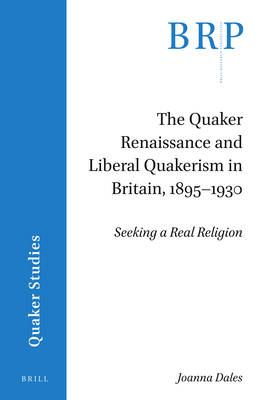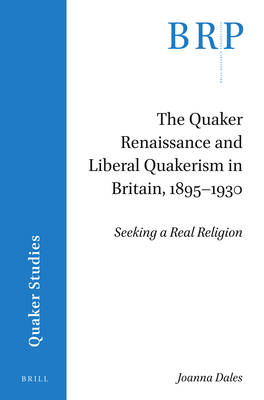
- Afhalen na 1 uur in een winkel met voorraad
- Gratis thuislevering in België vanaf € 30
- Ruim aanbod met 7 miljoen producten
- Afhalen na 1 uur in een winkel met voorraad
- Gratis thuislevering in België vanaf € 30
- Ruim aanbod met 7 miljoen producten
Zoeken
The Quaker Renaissance and Liberal Quakerism in Britain, 1895-1930
Seeking a Real Religion
Joanna Dales
€ 271,95
+ 543 punten
Omschrijving
Many Quakers who reached maturity towards the end of the nineteenth century found that their parents' religion had lost its connection with reality. New discoveries in science and biblical research called for new approaches to Christian faith. Evangelical beliefs dominant among nineteenth-century Quakers were now found wanting, especially those emphasising the supreme authority of the Bible and doctrines of atonement, whereby the wrath of God is appeased through the blood of Christ. Liberal Quakers sought a renewed sense of reality in their faith through recovering the vision of the first Quakers with their sense of the Light of God within each person. They also borrowed from mainstream liberal theology new attitudes to God, nature and service to society. The ensuing Quaker Renaissance found its voice at the Manchester Conference of 1895, and the educational initiatives which followed gave to British Quakerism an active faith fit for the testing reality of the twentieth century.
Specificaties
Betrokkenen
- Auteur(s):
- Uitgeverij:
Inhoud
- Aantal bladzijden:
- 98
- Taal:
- Engels
- Reeks:
Eigenschappen
- Productcode (EAN):
- 9789004438385
- Verschijningsdatum:
- 9/07/2020
- Uitvoering:
- Paperback
- Formaat:
- Trade paperback (VS)
- Afmetingen:
- 155 mm x 235 mm
- Gewicht:
- 161 g

Alleen bij Standaard Boekhandel
+ 543 punten op je klantenkaart van Standaard Boekhandel
Beoordelingen
We publiceren alleen reviews die voldoen aan de voorwaarden voor reviews. Bekijk onze voorwaarden voor reviews.











